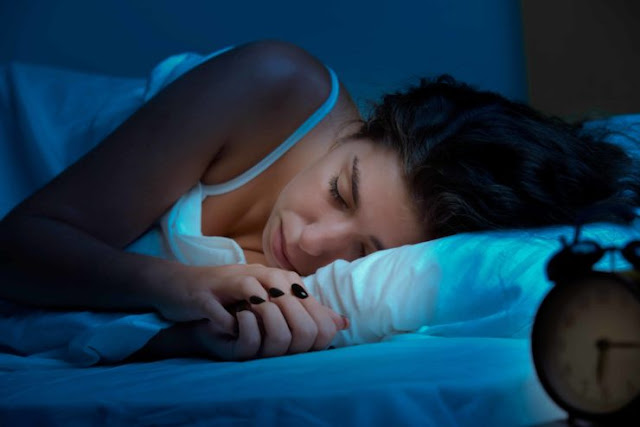
The Sleep-Weight Connection -- How Are Food Choices Affected by Lack of Sleep? -How is Appetite Affected by Lack of Sleep?
 |
| The Sleep-Weight Connection |
Robyn Flipse, MS. MA, RDN
Consultant to the Calorie Control Council
Consultant to the Calorie Control Council
If
you’ve been gaining weight and not getting enough sleep lately, some
new research suggests the problems are very likely connected. A study published in the European Journal of Clinical Nutrition
reported that people who didn’t get enough sleep consumed an extra 385
calories the following day. A 2.5 ounce bag of potato chips or a banana
nut muffin. can provide that many calories.
That’s enough extra
calories to gain one pound every 9 days! While sleep deprivation has its
own health consequences, the potential weight gain from consistently
not sleeping enough is also a concern.
How Are Food Choices Affected by Lack of Sleep?
In
this study, the researchers reviewed 11 other studies made up of 172
participants and compared people who didn’t get enough sleep (3.5 – 5
hours/night) to people who got adequate sleep (7 – 12 hours/night) and
what the subjects in each group ate afterwards. What they found was that
the sleep deprived people didn’t necessarily eat more, but they did
choose foods higher in fat and lower in protein, with about the same
amount of carbohydrate. The additional calories in the food choices of
the sleep deprived people resulted in weight gain since they weren’t
using those calories with increased physical activity.
The studies
in this review were not designed to explain why people change their
food choices following sleep deprivation, but the answer may lie in the
reward center of the brain. The results of another study
of sleep deprived adults showed greater activation in areas of the
brain associated with reward when subjects were exposed to food. This
suggests they would be more motivated to seek food when sleep deprived.
Another study
found higher levels of a lipid in the bloodstream known as
endocannabinoid, a naturally produced compound that binds to the same
receptors as the active ingredient in marijuana. Activating this part of
the brain has been shown to make eating more pleasurable and result in a
greater desire for palatable food.
How is Appetite Affected by Lack of Sleep?
Another
proposed reason for the change in food choices by sleep-deprived people
is a disruption in their hormones that control appetite, or the desire
to eat. The natural circadian rhythms, or biological clock, of the body
regulate our sleep-wake-feeding cycles to 24 hour periods. When those
cycles are thrown out of sync by external influences, such as staying
awake too long, other biological functions of the body are affected. Studies
on sleep deprived people have shown they have reduced levels of leptin,
a hormone that produces satiety, and increased levels of ghrelin, the
hormone that regulates hunger. The change in these hormones in sleep
deprived people supports their reports of having an increased appetite,
even though they shouldn’t be hungry.
How Does Food Affect Sleep?
There’s
one more twist to the sleep-weight gain story worth mentioning. When
certain foods or beverages are eaten at night, they can interfere with
the ability to fall asleep, or stay asleep. That can leave you feeling
tired the next day. When you feel tired during your waking hours, you
may turn to foods and beverages that will help you stay awake, such as
those containing caffeine or high amounts of added sugars. This eating
and drinking is not in response to hunger, but a way to temporarily
become more alert. It not only introduces unneeded calories, but can
create a vicious cycle of being overstimulated during the day, and
unable to sleep well at night.
While there are still a number of
unanswered questions, the evidence is growing that sleep and weight gain
are connected. Fortunately, the solution for many people may be as
simple as pulling down the shades, powering off all screens and turning
out the light for a good night’s sleep so you can wake up ready to start
the day with your appetite under control.
0 Response to "The Sleep-Weight Connection -- How Are Food Choices Affected by Lack of Sleep? -How is Appetite Affected by Lack of Sleep?"
Post a Comment